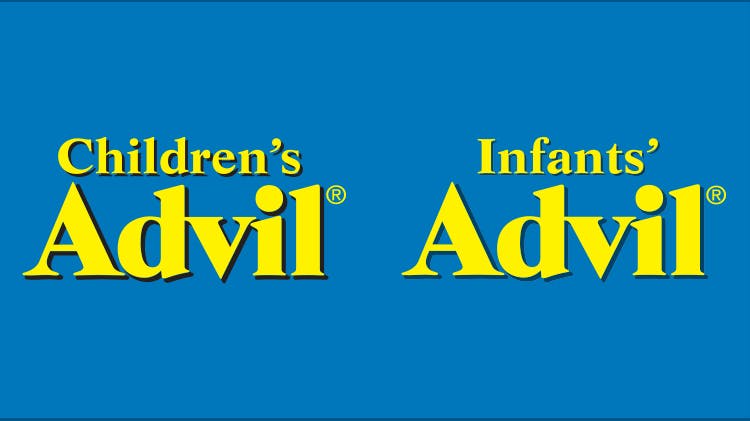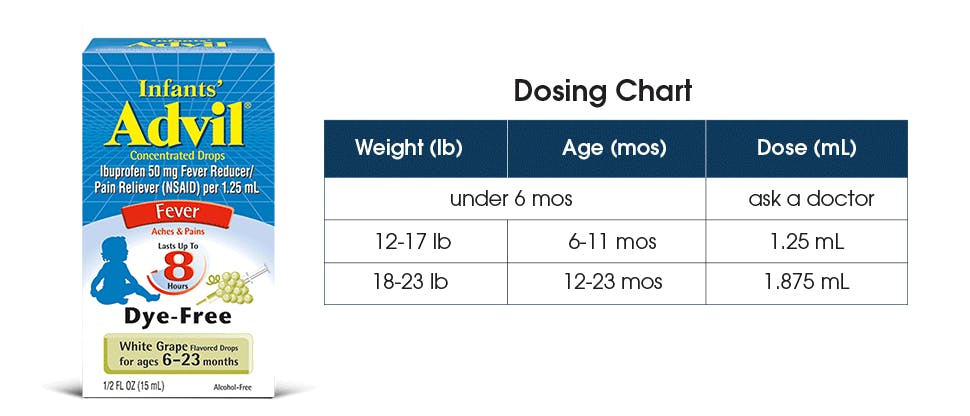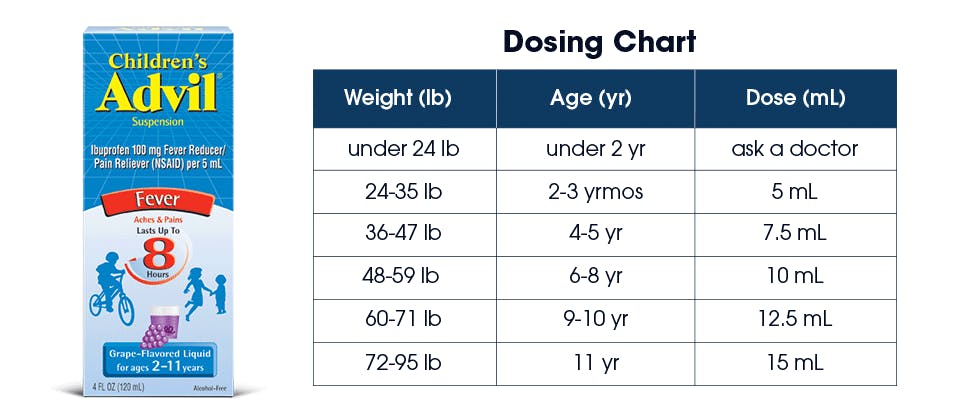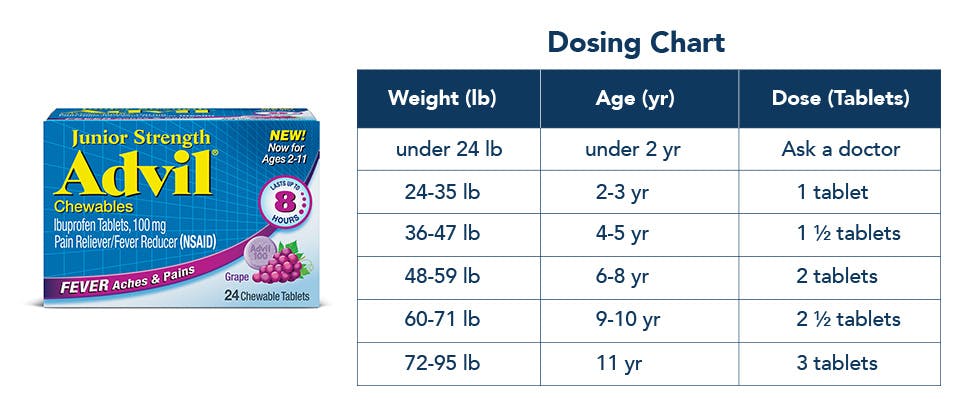Children’s Advil
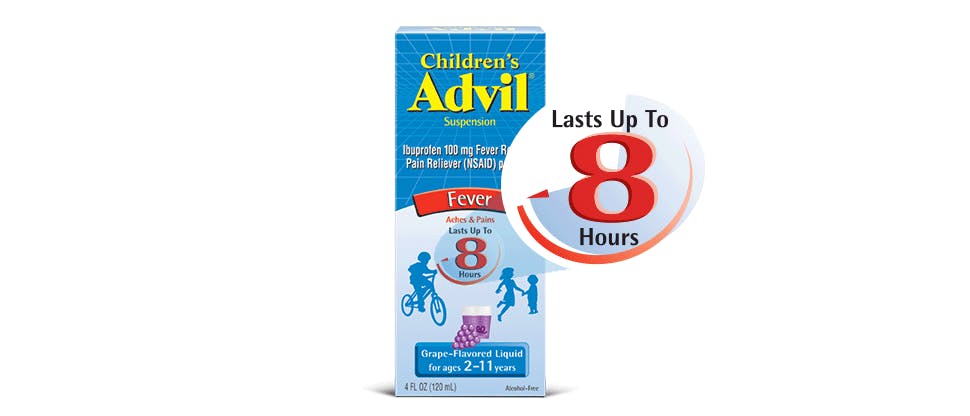
Safe for children. Approved by parents.
Children’s Advil has an excellent safety profile when used as directed.1-4

Children’s Advil has an excellent safety profile when used as directed1-4
A meta-analysis of 24 randomized clinical trials in pediatric subjects concluded that ibuprofen has a proven tolerability and safety profile comparable to placebo in terms of gastrointestinal symptoms, asthma, and renal adverse events.2
In a large, randomized, double-blind trial, it was shown that in short-term use of ibuprofen in children, there was a low risk of hospitalization for renal failure, gastrointestinal bleeding, or anaphylaxis (N=84,192).5
The follow-up period of an actual-use trial that included nearly 25,000 pediatric patients (approximately 13,800 of whom received ibuprofen) showed that less than 1% of pediatric patients treated with Children’s Advil experienced any of the most frequently reported adverse events identified in the trial, which are listed in the table below.4
This trial was a national, multicenter, observational study conducted in a naturalistic outpatient pediatric setting to evaluate the experience with Children’s Advil in children with fever and pain.4
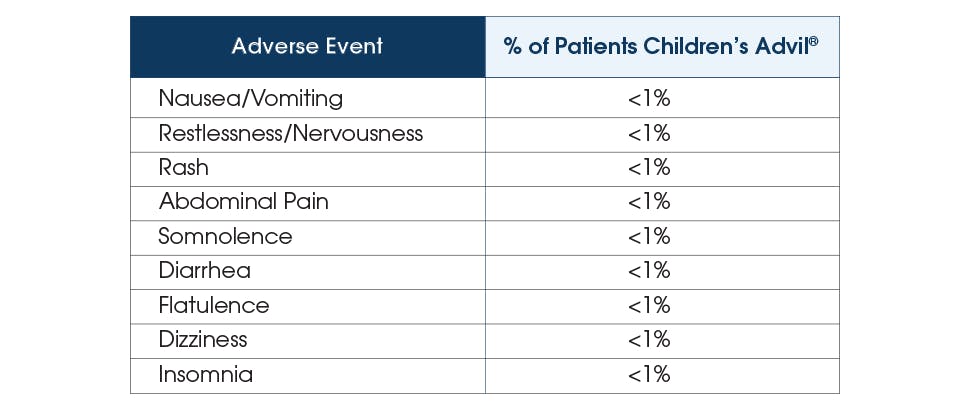
Common adverse events in pediatric patients taking ibuprofen4
Children’s Advil has a wide margin of safety and a low potential for toxicity from overdose as demonstrated in several studies.6,7

Children’s Advil brings fever down faster and keeps it down longer than Children’s Tylenol4,8*†
Nothing reduces fever faster* or keeps it down longer than Children’s Advil®—up to 8 hours of fever relief and nothing has been proven better on fever, not even Children’s Motrin®.4,9*†
Additionally, Children’s Advil provides more effective fever control with less frequent dosing (every 6-8 hours) than Children’s Tylenol® (as labeled, every 4 hours).4,8
Studies demonstrated that in pediatric patients, ibuprofen provided faster and longer fever reduction than acetaminophen.4,8*
*Based on reducing fever below 100°F.†Among leading OTC pain relievers/fever reducers.
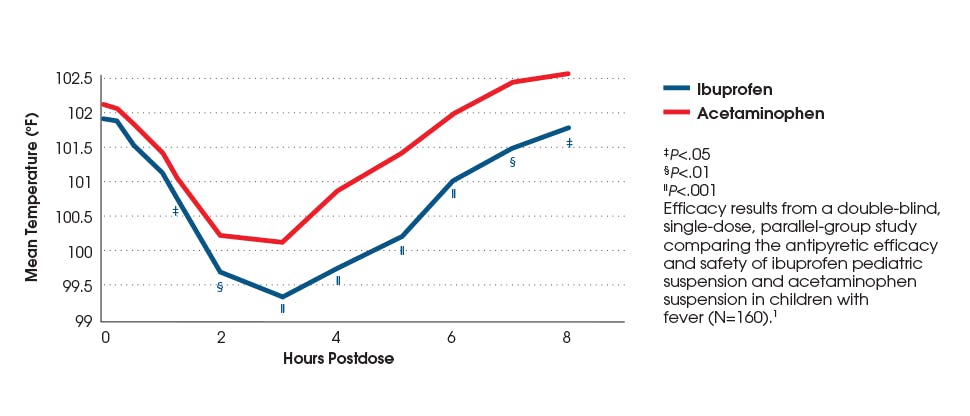
Fever reduction with Children’s Advil vs Children’s Tylenol4
Efficacy results from a double-blind, single-dose, parallel-group study comparing the antipyretic efficacy and safety of ibuprofen pediatric suspension and acetaminophen in children with fever (N=160).4
Statistically fewer treatment failures with ibuprofen vs acetaminophen at 4 and 6 hours after initial dose.4‡
‡Treatment failure was defined as an increase in temperature of 1°F above the baseline temperature or an absolute temperature of greater than 104.9°F rectally or 103.9°F orally at any time during the postdosing follow-up period, or if there was no evidence of drug effect any time after the 2-hour postdosing time point.
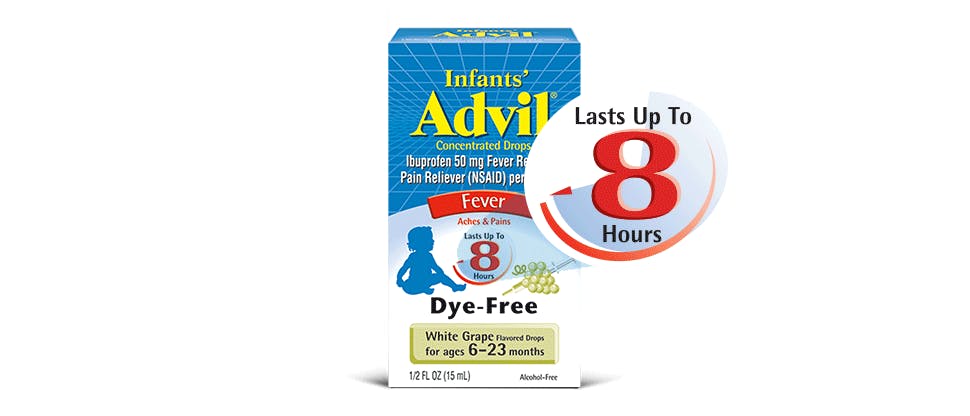
Infants’ Advil—gentle infants’ fever relief
Infants’ Advil delivers unsurpassed fever relief* that baby can stomach.9,10†
- Nothing works faster9*
- Nothing keeps fever down longer9†
- Gentle on baby’s stomach10
*Based on reducing fever below 100°F.†Among leading over-the-counter pain relievers/fever reducers.

Children’s Advil is indicated for children aged 2-11 years and Infants’ Advil is indicated for infants 12 pounds to 23 pounds and 6 months through 23 months of age. Please refer to Children’s Advil and Infants’ Advil Drug Facts for full product information.
Recommend Children’s and Infants’ Advil

Recommend Children’s and Infants’ Advil
Children’s and Infants’ Advil have a trusted safety profile with superior fever relief.
Learn more about Children’s and Infants’ Advil
Children’s Advil Drug Facts
The drug facts contain all you need to know about Children’s Advil, as well as nonsteroidal anti-inflammatory drug (NSAID) and acetaminophen warnings.
Infants’ Advil Drug Facts
The drug facts contain all you need to know about Infants’ Advil, as well as NSAID and acetaminophen warnings.
